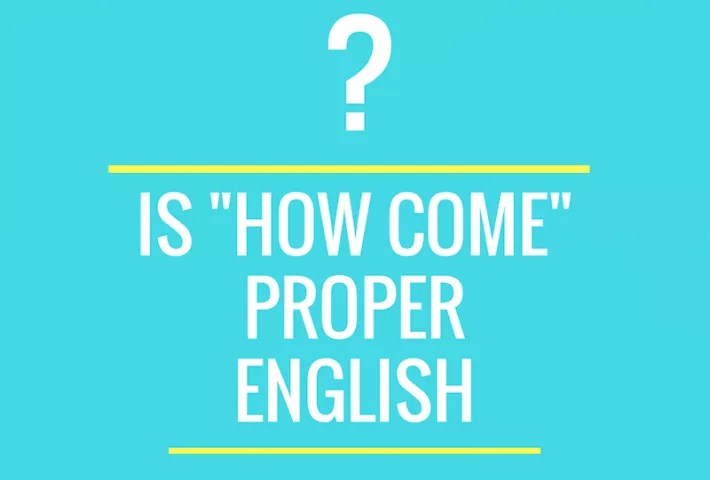Americans started using the phrase "how come" in the mid-1800s. It comes from older phrases such as "how comes it that...?" Although the word "how" has had a sense of "why" in its meaning for hundreds of years, "how come" is still considered to be more informal than "why."
A listener named Barbara wrote in wondering about the phrase “how come.” She wrote:
The other day I was formulating a question for a Google search in my mind and started out with the phrase “How come….” I then quickly realized that I should probably use the word “Why” instead. Then I noted to myself that my natural tendency was to say “How come…” instead of “Why…” and this made me wonder how common that is. Is it a regional kind of thing, where people in certain parts of the world would tend to say one more than the other? Or is it a speaking vs. writing issue? Formal vs. informal? Or what?
Well, that’s a great set of question, Barbara!
‘How come’ is more common in the United States than in Britain
The oldest reference for “how come” in the Oxford English Dictionary (OED) is an entry in Bartlett’s Dictionary of Americanisms published in 1848. Now although the OED says “how come” was invented in the United States, the entry in Bartlett’s indicates it originated in England. The entry reads, “Doubtless an English phrase, brought over by the original settlers.”
Regardless of whether “how come” truly originated in the United States, a search of the text in books scanned by Google Books show that at least in those book, it is still more common in American English than British English. So there are regional differences, at least at the country level.
‘How come’ is more informal than ‘why’
“How come” is considered to be more informal than “why.” The OED labels it as colloquial, and you’re more likely to see it on Twitter than in a corporate annual report.
As for speaking versus writing, this is getting a little bit beyond my research skills, but if I control for how big the databases are, it looks like “how come” appears more often in a corpus of spoken English than in a corpus of written English, and that matches what my guess would be. Since it’s informal, I’d expect it to be more common in spoken English than in written English.
‘How come’ comes from phrases like ‘how comes it that…’
Barbara also asked where we get the phrase “how come.”
Well, ”how come” is believed to be short for “how did it come about that,” “how is it that,” or “how comes it.”
For example, here’s a line from the British poet Edmund Spencer’s “Sonnet 30” that uses the older, longer phrase:
How comes it then that this her cold so great is not dissolved through my so hot desire . . . (That’s from 1611.)
And here’s an even older one from Machiavelli’s “The Prince,” published in 1513.
How comes it that the Church has attained such greatness in temporal power . . .
Even in that type of use, it can be “how come” instead of “how comes” For example, here’s a line from a British book from 1817 talking about young animals:
How come they to run so naturally?
But we love to shorten things. “Pantaloons” became “pants” and “omnibus” became “bus,” and “how comes it that” became “how come.”
‘How’ has had a sense of ‘why’ for a long time
Now, Barbara noted that “how comes it that” means something slightly different from “why.” How something came to happen can be different from why it happened.
All I can say is that “how” is an extremely old word that goes all the way back to Old English, and therefore, like many extremely old words, it has a lot of different, subtle meanings.
The OED shows “how” alone meaning both “how comes it that” and “why” as far back as the year 1340. In the citation that is closest to modern English, there’s a line from the 1611 version of the King James Bible that at the time was written, “How saidest thou, She is my sister?” which is written in modern translations, as “Why did you say, She is my sister?”
So I can’t exactly answer the question of why “how come” is interchangeable with “why,” except to say that although the two words can mean different things today, “how” has had a sense of “why” in its meaning for a very long time.
Thanks for the questions, Barbara!





